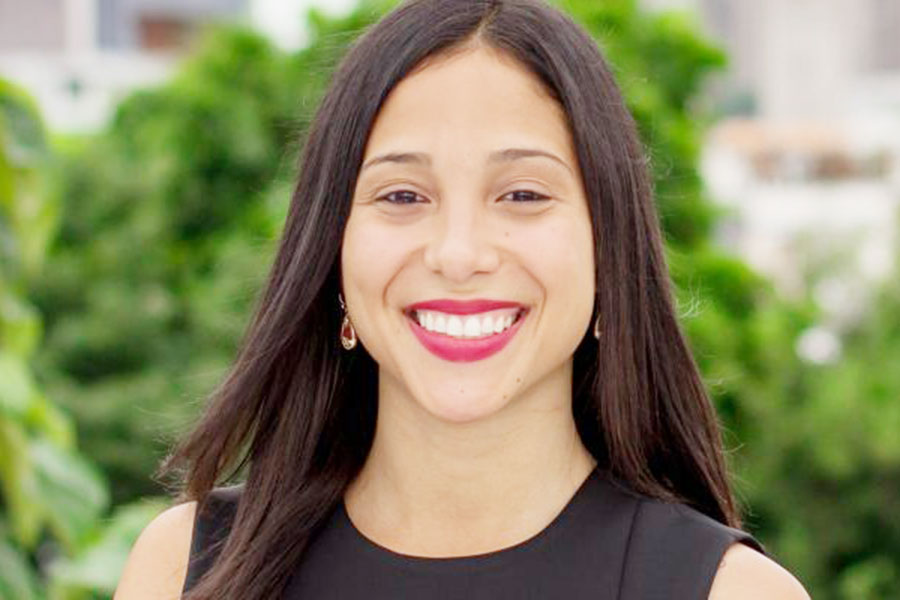Iveliz R. Crespo, the city Law Department’s diversity officer, says she’s committed to recruiting a diverse workforce at the agency, including adding more LGBT staffers. “One of my goals is to increase the amount of diverse attorneys including LGBT attorneys,” Crespo told PGN.
Crespo, 29, who identifies as a queer woman of color, was hired in September as the agency’s first Director of Professional Development, Diversity and Inclusion. The law department has 332 staffers, including 220 attorneys.
“My main focus is not only to diversify our workforce, but also to ensure that when we bring in these diverse attorneys, they can thrive in this environment. We want to ensure they’re able to succeed and grow professionally,” she said.
Crespo said she’s personally aware of numerous LGBT attorneys at the agency. But she stopped short of estimating how many staffers are LGBT. In August, she hopes to launch an “inclusivity assessment.” The voluntary staff survey will contain questions about the respondent’s LGBT status.
“It’s a way for me to ask questions of our staff — to collect information on their race, sex, sexual orientation, gender identity. Really, it’s just a temperature check to find out what’s going on, what’s going really well and what we can improve on,” she said.
Crespo said responses elicited by the survey will result in a report she’ll provide to upper management at the law department. “I’m going to create a report with all of my findings and provide that to leadership,” she said.
The report will contain recommendations for achieving even more inclusivity at the agency, she said.
Crespo said she’s working hard to recruit employees from diverse backgrounds, including LGBT employees. For example, she makes sure job descriptions are sent to venues where LGBT applicants are likely, such as LGBT affinity groups and law-student organizations.
Since December, 66 percent of the law department’s new hires identified as people of color and 61 percent identified as women. Crespo said the agency doesn’t collect information about the LGBTQ status of new hires but hopes to do so in the future.
In August, Crespo will speak at Lavender Law’s annual conference, to be held in Philadelphia. “I hope to generate interest in working at the law department,” she said. The three-day conference is hosted by the National LGBT Bar Association and is expected to draw about 500 law students.
“Not only are we recruiting LGBT attorneys but we’re making safe spaces so people can grow and work here longterm. I want to make sure folks view the law department as a space where they can be their full selves,” Crespo said.
The law department also seeks to raise its profile among minority communities. For example, the department encourages its attorneys to take leadership roles in minority-based affinity groups. “We want to be sure we’re being as inclusive as possible in every aspect of everything we do,” Crespo said.
Within the law department, Crespo also ensures that professional-development training includes LGBTQ-related cultural competency workshops. “We’re bringing in diverse hires and we’re also working with people who aren’t necessarily diverse to learn how to effectively be culturally competent lawyers,” she said.
Before joining the Law Department, Crespo worked as a civil litigator for various non-profits. She has fought for migrant farm workers in civil rights, labor trafficking, and employment law matters. Her most recent position at a non-profit was at Mazzoni Center, where she served as a staff attorney.
Crespo said she enjoys her work at the law department very much. “This is probably one of the most affirming places where I’ve worked at. It’s a place where I’m not concerned about being myself, talking openly about being queer. I feel very supported by leadership.”
Crespo hasn’t received any negative feedback about her new position. “Most people have received me very positively,” she concluded. “I haven’t received any negative feedback.”

